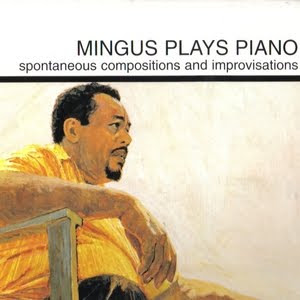Cannonball Adderley - Nippon Soul (1963)
jazz | 1cd | eac-flac-cue-log-cover | 355MB
OJC | rar +5% recovery
AMG:Recorded live in Tokyo on July 14th and 15th, 1963, Nippon Soul is not the Asian-jazz fusion suggested by the title (check out Cal Tjader's Several Shades of Jade and Breeze From the East for that), but a solid live set that showcases one of Cannonball Adderley's finest groups, featuring himself, brother Nat Adderley on cornet, bassist Sam Jones, drummer Louis Hayes, and most notably pianist Joe Zawinul and reedsman Yusef Lateef. Both near the beginnings of their careers, Zawinul and Lateef nonetheless dominate this set; two of the original tracks are by Lateef, including the centerpiece "Brother John," for John Coltrane and featuring an astonishing extended Lateef solo on oboe, an instrument not normally associated with jazz, but which takes on an almost Middle Eastern fluidity and grace in its approximation of Coltrane's "sheets of sound" technique. Zawinul arranged the standards for the group, reinterpreting Cole Porter's warm "Easy to Love" as a fleet bebop vehicle for a wicked Adderley solo and working the "Come Sunday" section of Duke Ellington's "Black, Brown and Beige" into a full gospel-style call and response between himself and Jones. Often overlooked, this is one of Adderley's finest albums. The CD reissue includes an extra track, an extended take on "Work Song."
Tracks:
1. "Nippon Soul (Nihon No Soul)" (Julian "Cannonball" Adderley) - 9:34
2. "Easy to Love" (Cole Porter) - 3:49
3. "The Weaver" (Yusef Lateef) - 10:50
4. "Tengo Tango" (Julian "Cannonball" Adderley, Nat Adderley) - 2:40
5. "Come Sunday" (Duke Ellington) - 7:03
6. "Brother John" (Lateef) - 13:03
7. 'Work Song" (Nat Adderley) - 9:06 Bonus track on CD
Personnel:
* Cannonball Adderley - alto saxophone
* Nat Adderley - cornet
* Yusef Lateef - tenor saxophone, flute, oboe
* Joe Zawinul - piano
* Sam Jones - bass
* Louis Hayes - drums
r c

































